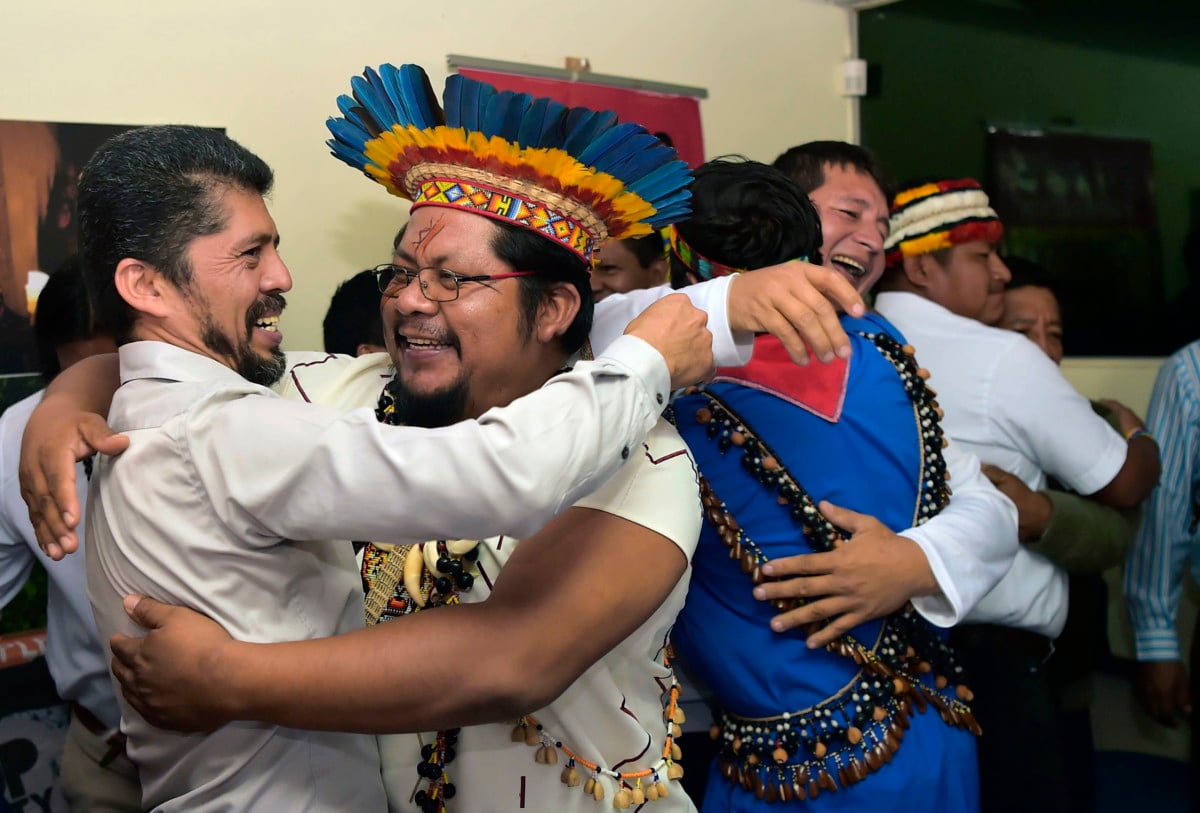The Constitutional Court of Ecuador has issued a long-awaited ruling in favor of those affected by the transnational oil company Chevron, which operated through its subsidiary Texaco in Ecuador between 1964 and 1990. The court rejected the protection action that the company filed in 2013.
In the 151-page ruling, the court denied Chevron’s claim of violation of constitutional rights. Chevron will now have to pay $9.5 billion for the repair and remediation of social and environmental damage that – according to audits and expert reports – were a result of oil company operations in the Amazonian provinces of Sucumbíos and Orellana.
The benchmark decision on the pollution case came after the court found that Chevron deliberately dumped billions of gallons of toxic oil waste. The waste was dumped in the Amazon rainforest on indigenous lands.
The news was announced by members of the Union of Affected by Petroleum Chevron (UDAPT) on July 11. UDAPT represents a group of indigenous people of the Cofan, Secoya and Kichwa nationalities, and settlers. UDAPT coordinator William Lucitanda said in an interview that it was a “historic day of the resistance of indigenous peoples in defense of collective rights.” According to Lucitanda, at least 30,000 people have been impacted.
Pablo Fajardo, who was affected by Chevron and became a lawyer on the case said in a telephone interview that the ruling “means a lot” to them. Fajardo said they can now focus on how to validate or approve it in other jurisdictions in order to execute and collect the funds.
“One argument put by Chevron (to not comply with the order) was to say that there was still a ruling, a pending procedure in Ecuador and that it was not appropriate to standardize the sentence outside because a ruling was pending,” Fajardo said.
Chevron Corporation has said that its assets in Ecuador are not enough to cover the amount ordered by the court. They unsuccessfully tried a similar approach in Argentina and Brazil. According to Fajardo, the argument used in both countries was that Chevron operates a subsidiary of the corporation (not the headquarters of Chevron), therefore the subsidiaries are not responsible for the debts of the corporation.
Ironically, two years ago Ecuador lost an arbitration against Texaco (later bought by Chevron) and had to pay $112 million dollars.
“What they are doing is that when they have to collect their debt, that is their company, but when they have to pay, they say no, that it is a company that is not theirs, that is autonomous, independent,” Fajardo said. “But it is a legal trap.”
A longer version of this article appeared in Spanish on Mongabay Latam on July 13, 2018.
Trump is silencing political dissent. We appeal for your support.
Progressive nonprofits are the latest target caught in Trump’s crosshairs. With the aim of eliminating political opposition, Trump and his sycophants are working to curb government funding, constrain private foundations, and even cut tax-exempt status from organizations he dislikes.
We’re concerned, because Truthout is not immune to such bad-faith attacks.
We can only resist Trump’s attacks by cultivating a strong base of support. The right-wing mediasphere is funded comfortably by billionaire owners and venture capitalist philanthropists. At Truthout, we have you.
Truthout has launched a fundraiser to raise $38,000 in the next 6 days. Please take a meaningful action in the fight against authoritarianism: make a one-time or monthly donation to Truthout. If you have the means, please dig deep.
